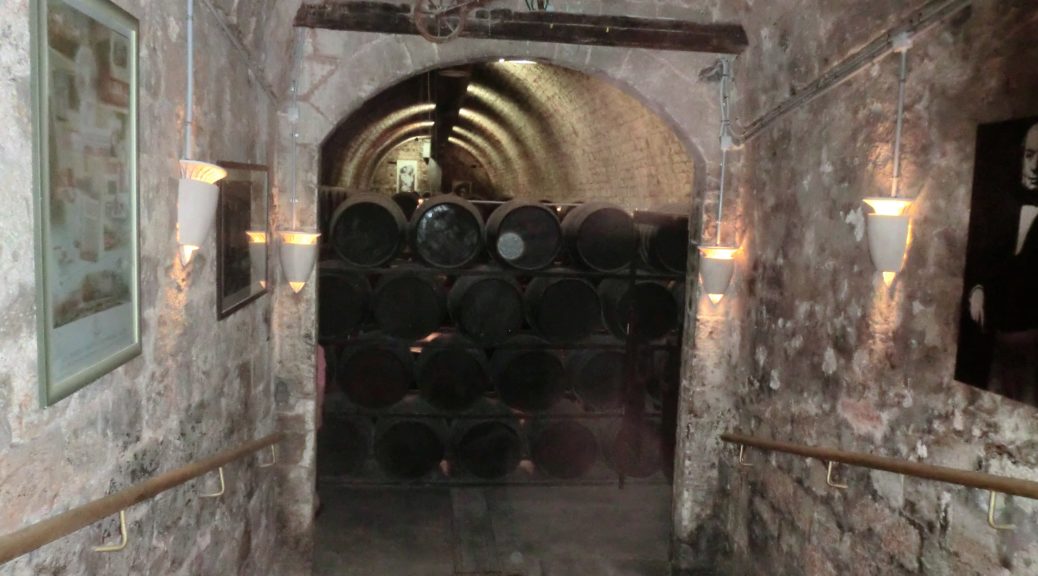
8 Best Wineries to Visit in Israel
“If the Romans made wine here 2,000 years ago, why can’t we today?”
These wise words from one of the more recent Israeli winemakers of the Judean Desert south of Jerusalem embody the explosion of new wineries in Israel over the last decade or so, with the most up-and-coming regions being located in Israel’s desert areas in the south of the country.
Wine has been produced in Israel for millenia – dating from biblical times and later during the Roman Empire – but modern Israeli wine-making has happened on a much shorter timescale, from the 1880s on. And it is the last decade or two in particular that has seen an explosion of new boutique wineries across Israel producing excellent bottles of wine. The recent expansion of wineries is not limited to just the number of wine producers, but also includes wineries popping up in new geographic areas of the country, bringing even more variety to what types of wines today constitute ‘Israeli wine.’ This also means that wherever you’re travelling in the country, there is likely a winery nearby that you can pop into for a visit and a tasting.
Traditionally the green, fertile areas of the Galilee and Golan Heights and the coastal areas in the north of the country have been the hub for wine production, and you’ll still find Israel’s oldest and largest wineries there. Some of the most interesting wines being produced however come from the newer wine-producing regions in the more arid regions to the south, whose varied terroir (soil) and climate lead to very different flavors and notes in the final product. Of course grapes can always taste quite different depending on where they’re grown, but Israel’s varied terrain over relatively small country makes it an especially interesting contrast as you taste your way through its wineries as you travel across the country.
In general, the red grapes grown throughout Israel today tend to be similar to those found in France, from the most common Cabernet Sauvignon, Merlot, and Syrah and even some of the lesser-known red grape varietals like Cabernet Franc and Petit Verdot. In terms of whites, you’ll see a lot of Chardonnay and Sauvignon Blanc, along with some German white wines like Gewurztraminer and Riesling.
I’ve personally visited most of the wineries on this list, however there are a few additional wineries producing excellent bottles right now that I’ve also included as options for a winery visit in the relevant regions below:
Wineries of Note
Coastal Areas
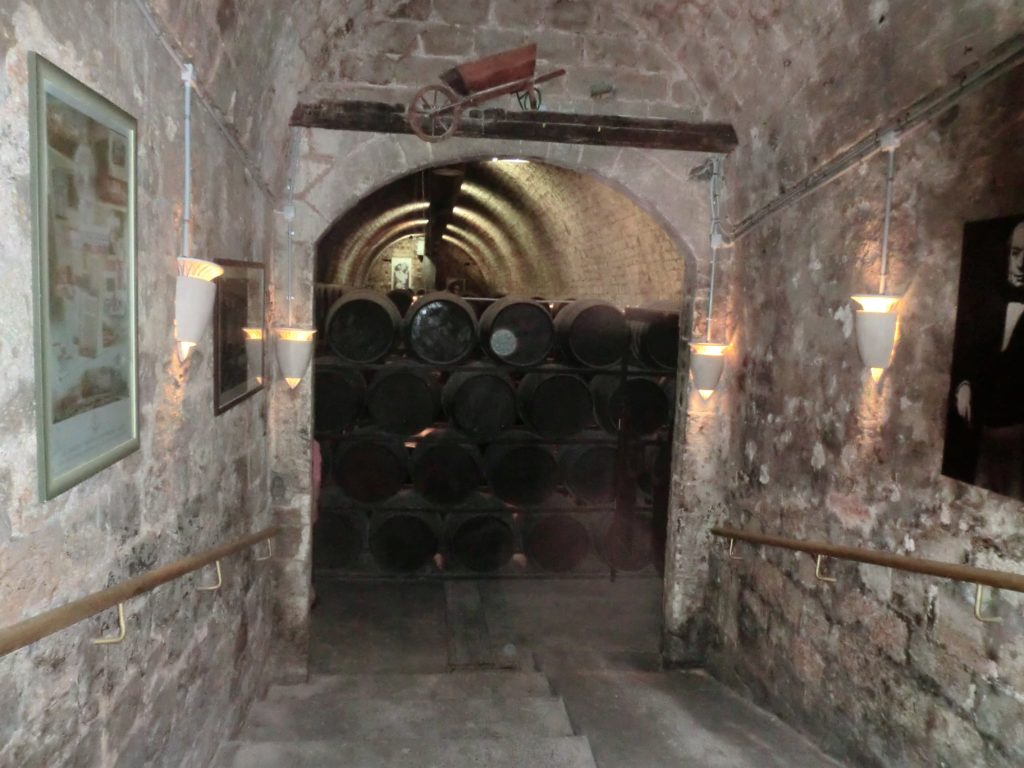
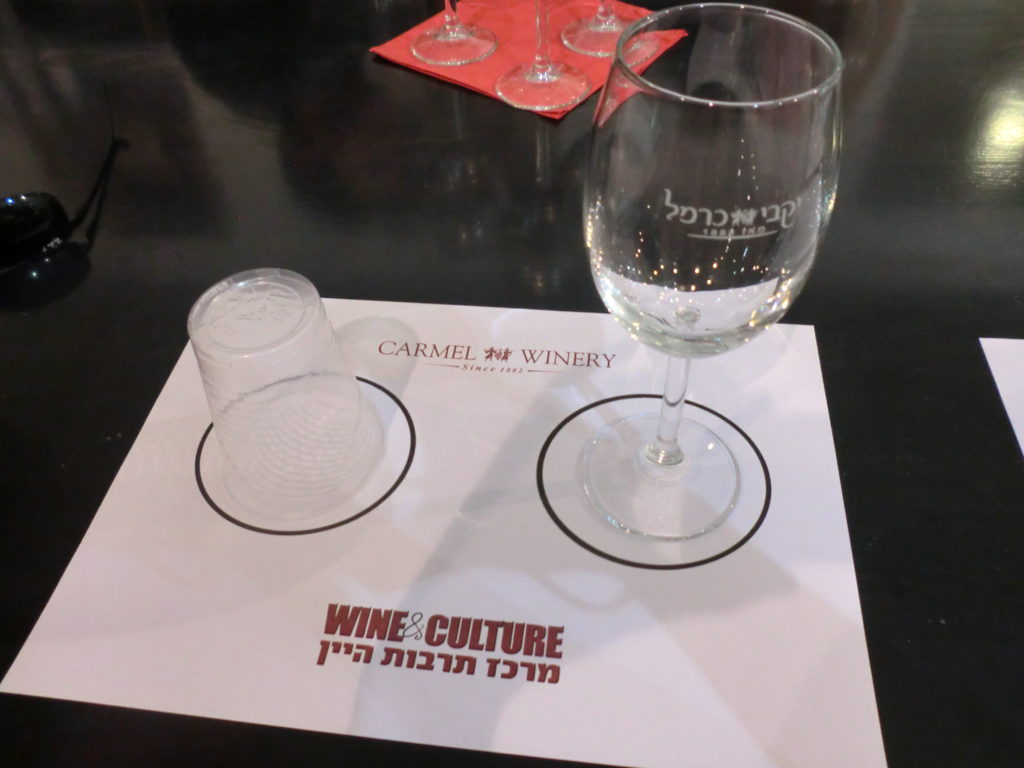
Reservations: Required
Tasting: Organized as a group or VIP tour and tasting, for a fee
Varietals: Cabernet Franc, Cabernet Sauvignon, Carignan, Chardonnay, Merlot, Riesling, Sauvignon Blanc, Shiraz, Viognier (and several others, check out the full list here)
Famous French winemaker Baron de Rothschild (of Chateau Lafitte renown) founded this winery in the late 1800s, kicking off the modern era of Israeli winemaking. Carmel is actually the largest winery in Israel, and has such interesting history it is also well worth it to come for the tour. If you get a chance, check out the original log books of expenses, and you’ll notice several incidences of the word bakshish (the Arabic word for bribe) listed in several different spellings – a recurring expense when the winery was first founded 😉 It is quite inexpensive for the basic tour, so you’ll definitely get your money’s worth here and also enjoy the several wines available for tasting whichever tour you choose.
Reservations: Not needed (except for groups)
Tasting: Free
Varietals: Cabernet Franc, Cabernet Sauvignon, Gewurtztraminer, Merlot, Sauvignon Blanc, Shiraz
Although I haven’t been personally, the wines from Tulip are so acclaimed I am compelled to include it on this list. Their wines are routinely on lists of top wines from Israel, and their visitor’s center garners high praise. Also, this family winery has a social conscience, employing many people with special needs from the surrounding community.
Golan Heights
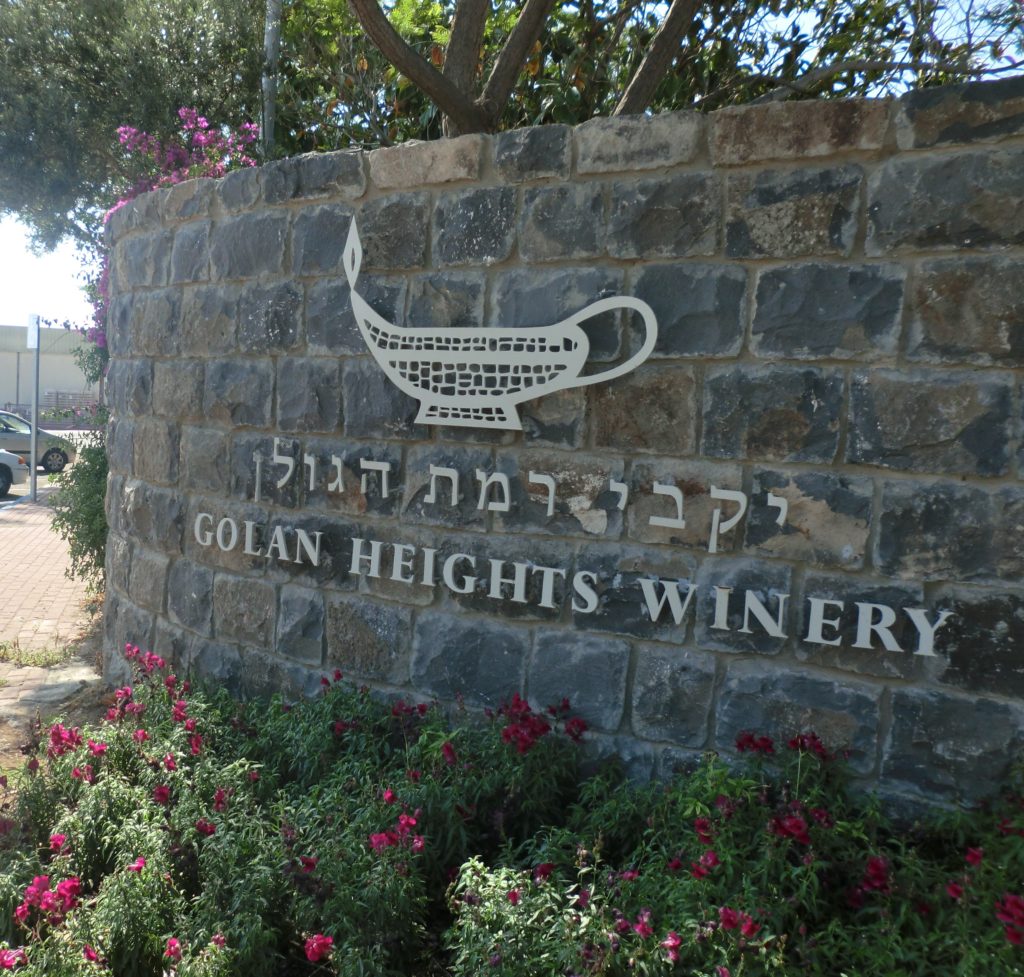
Reservations: Required
Tasting: Organized as a group or VIP tour and tasting, for a fee
Varietals: Cabernet Franc, Cabernet Sauvignon, Chardonnay, Malbec, Petit Verdot, Riesling, Sauvignon Blanc, Syrah, Viognier (and several others, check out the full list here)
The Golan Heights Winery offers what I would characterize as the most touristy experience of the wineries on this list, with tour groups criss-crossing each other throughout the estate. Due to the several acclaimed labels produced by this winery, and their extensive operations, it’s definitely one of the wineries where it is worth the advance planning necessary for a visit. There are several levels of tours available in multiple languages beyond Hebrew and English. The different levels of tours vary in length, price, food offered, and which wines are available for tasting.
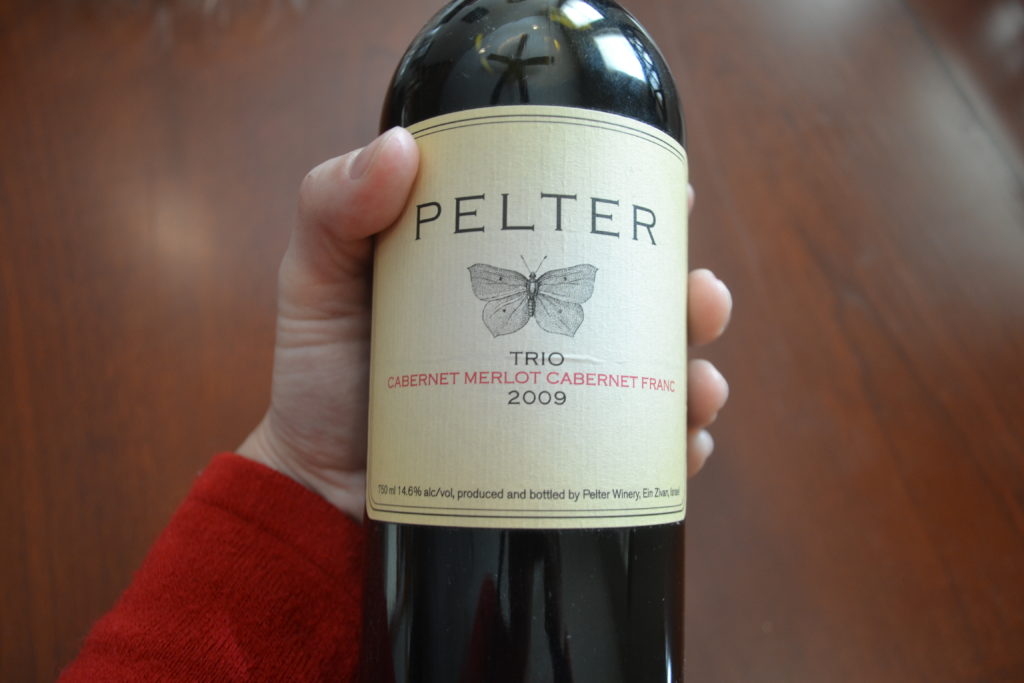
Reservations: Not needed except for groups
Tasting: Free, there is a per person fee for groups, which includes tour and wine tasting
Varietals: Cabernet Franc, Cabernet Sauvignon, Sauvignon Blanc, Shiraz
Have a phone or GPS handy, as this winery was a bit hard to find. Once you arrive, you’ll be rewarded by a tasting of excellent whites and interesting reds. While Pelter is a known brand you’ll find in many wine shops and on restaurant menus, you’ll be able to buy bottles for a much more reasonable price in person and have a great tasting experience. And while it may be pricier wine than the bottles you’ll find at other wineries, the quality makes it all worth it.
Judean Desert/Center
Reservations: Required
Tasting: Organized as a group tour and tasting, for a fee
Varietals: Cabernet Franc, Cabernet Sauvignon, Chardonnay, Malbec, Merlot, Petit Verdot
This winery involves a bit more effort to visit on your own, although it is a stop on a lot of organized wine tours. The wines include a chardonnay, rosé, and some red blends, many of which have received international recognition for their quality. Like several other wineries on this list, it is a family-managed winery, which you’ll feel on your visit. Do note that this is the priciest of the wine tastings, which includes a winery tour and cheese plate.
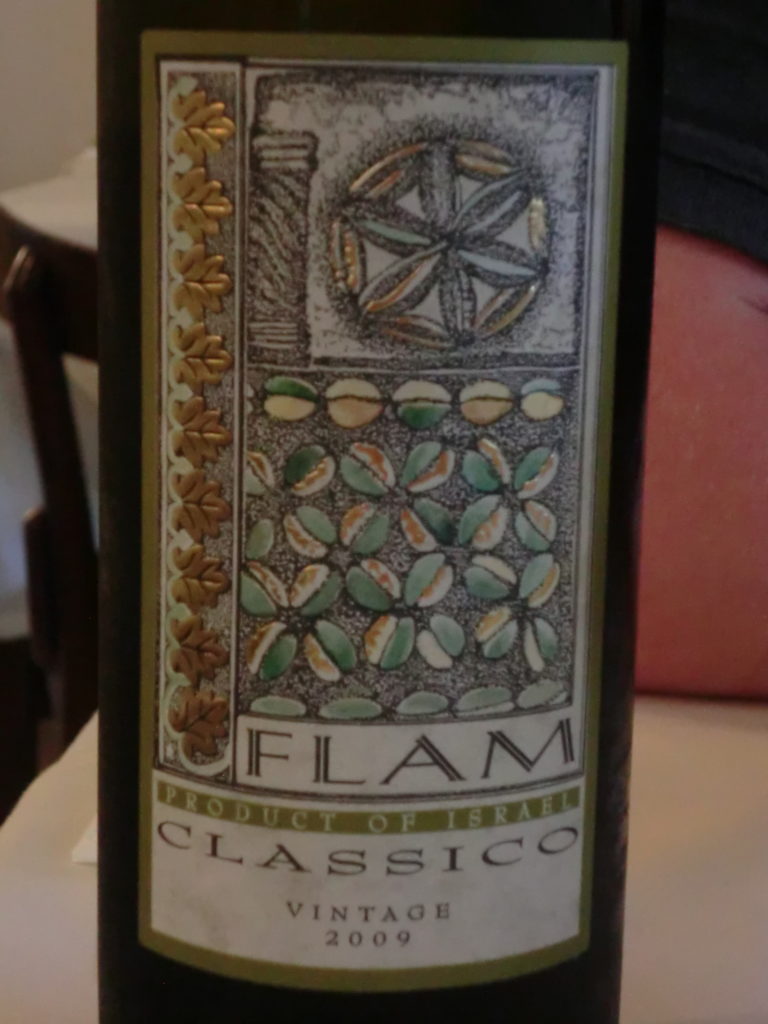
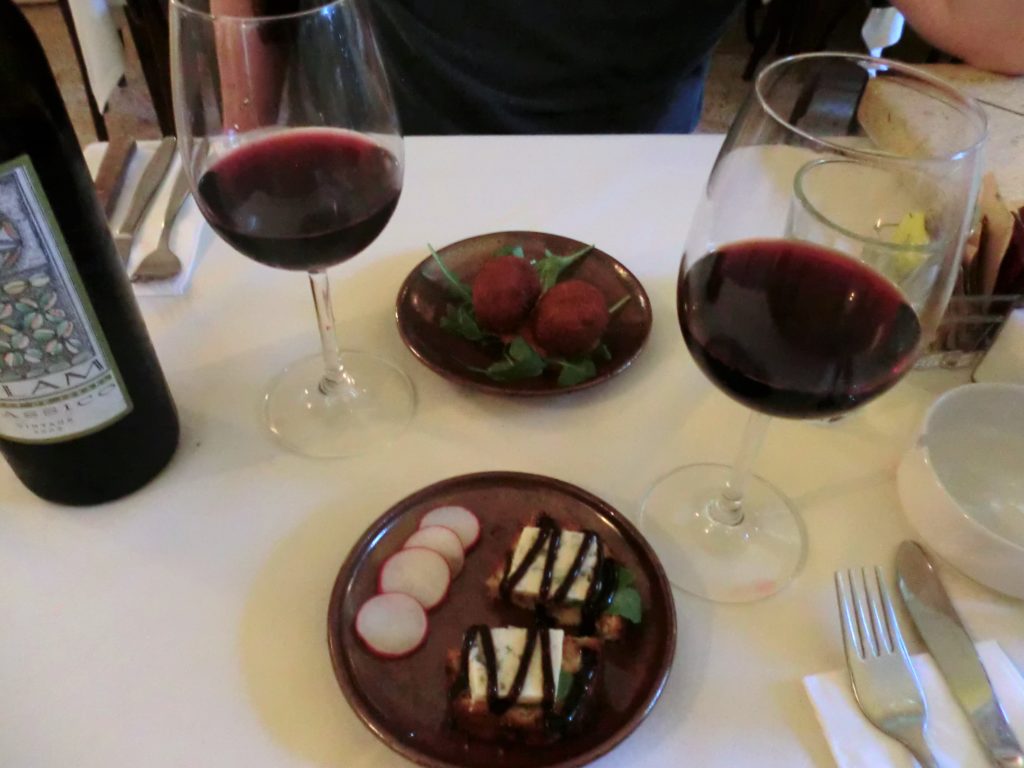
Reservations: Required
Tasting: Organized as a group tour and tasting (with add-on option of cheese & bread), for a fee
Varietals: Cabernet Sauvignon, Chardonnay, Merlot, Sauvignon Blanc, Syrah
While I’ve enjoyed a bottle of wine from Flam at a restaurant in Tel Aviv, I have not visited the winery personally. It is the second priciest winery tasting option on this list (with some of the priciest bottles of wine), however the winery has received so much attention lately I would be remiss to not include it. Definitely a stop for the serious oenophile.
Reservations: Required
Tasting: Organized as a group tour and tasting, for a fee
Varietals: Cabernet Sauvignon, Chardonnay, Petit Verdot, Sauvignon Blanc, Syrah
Tzora is unique to this list for being a boutique winery in a desert region that has actually been around for over two decades, producing wine since the early 1990s. One of the pioneering wineries of the Judean Hills, the team at Tzora has assembled a lot of expertise that shines through in the final product, always topping lists of the best Israeli wines.
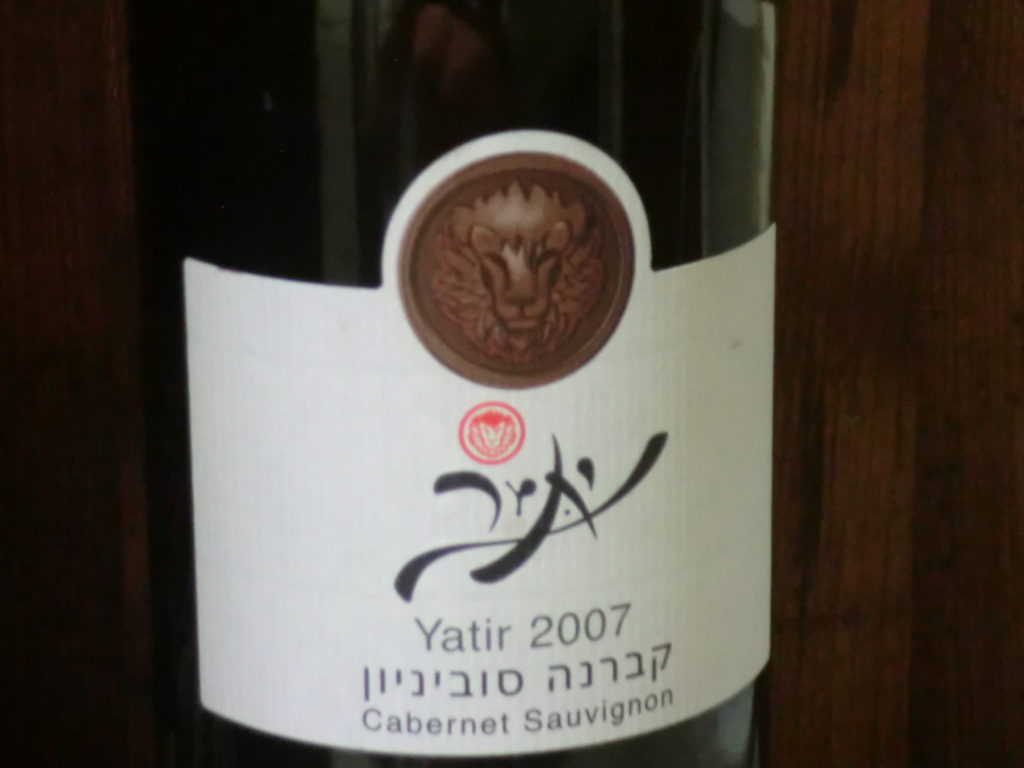
Reservations: Recommended
Tasting: Free
Varietals: Cabernet Sauvignon, Merlot, Petit Verdot, Syrah, Viognier
Another one of my absolute favorite wineries, Yatir is one of Israel’s current outstanding producers. Like Pelter (see above), it is widely available in wine shops around Israel, although at a markup from what you can pay for the excellent quality in-person at the winery. A top winery for a visit, producing some truly excellent bottles worth taking home.
(More) Practical Tips for Visiting
There are a few additional things you may want to keep in mind when planning your wine tasting tour of Israel – or at least a tour of Israel with some wine tasting along the way =)
TIP! If you’ve rented a car, you’ll know you’re in the vicinity of a winery by the brown sign for sights of interest with grapes on it. The best part of taking a road trip is the spontaneity to go somewhere unexpected at a moment’s notice. If the mood strikes you, take advantage!
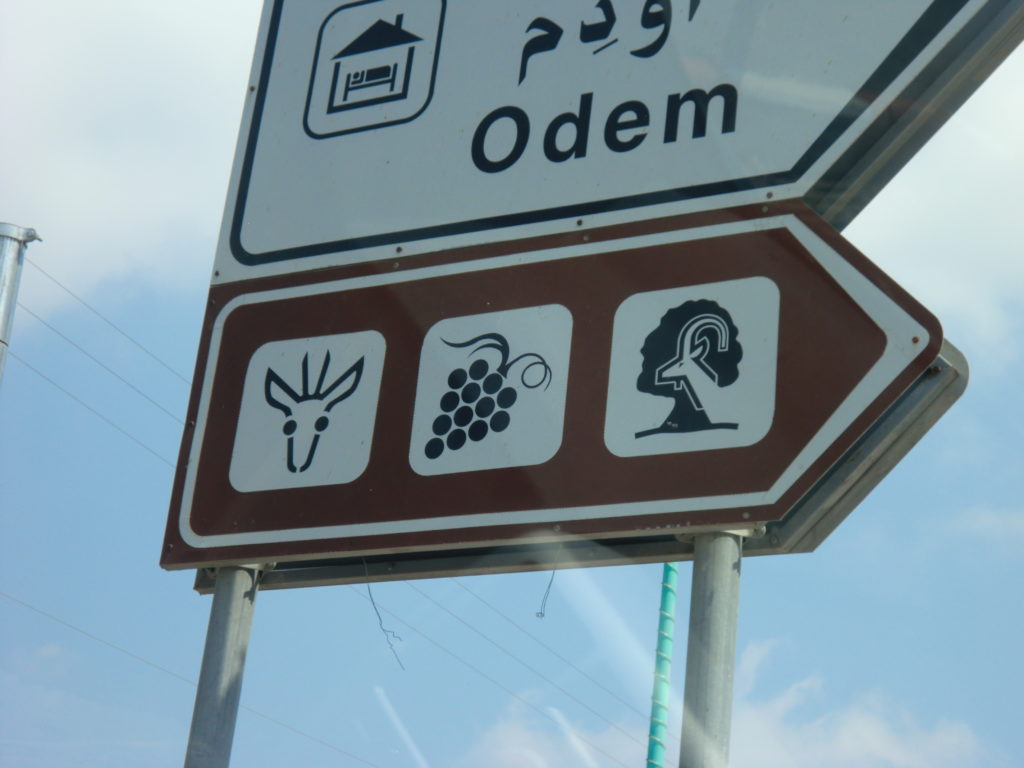
TIP! Most Israelis speak English well, and this is especially true at the wineries hosting visitors, so don’t worry about being able to understand your tour or tasting. Some of the larger wineries will also offer tours in additional languages.
TIP! A lot of wineries are closed on Saturday for the Jewish Sabbath, and many have limited hours on Friday as the Sabbath begins at sundown (so timing varies throughout the year). Plan your visits accordingly.
TIP! Wineries (and the country as a whole) will also close for other Jewish holidays that may not be on your radar, so definitely consult a Jewish calendar before planning your trip and your winery visits.
TIP! Even for the wineries that don’t require advance reservations, it is good to have a working phone handy to give them a heads up you’ll be coming or to get help with directions if you’re lost on the way.
TIP! Phone numbers in Israel begin with a zero followed by another number indicating the region, and cell phones all begin with 05. If you’re calling from an Israeli phone, include the zero. For calls from other places, when you add the +972 in front for the country code, leave off the zero from the number.
Israeli wine tasting for me ranks up there with some of the stellar tastings I’ve done in wine regions all over the world, from the US to Australia to France to Italy. And the environment is so different from wine regions you may be used to that even some of the grapes you think you know well are likely to surprise you.
If you’re not sure if you’ll have time to do a wine tasting at a winery, check out the ‘Wine’ section of my Foodie Bucket List for Israel for the best spot where you can do a number of tastings at wine bar in Tel Aviv.
Have you ever had Israeli wine? Any favorite Israeli wineries that didn’t make my list? Share any additional intel and comments below!
And if you like this post, ‘Pin It’ for later!
